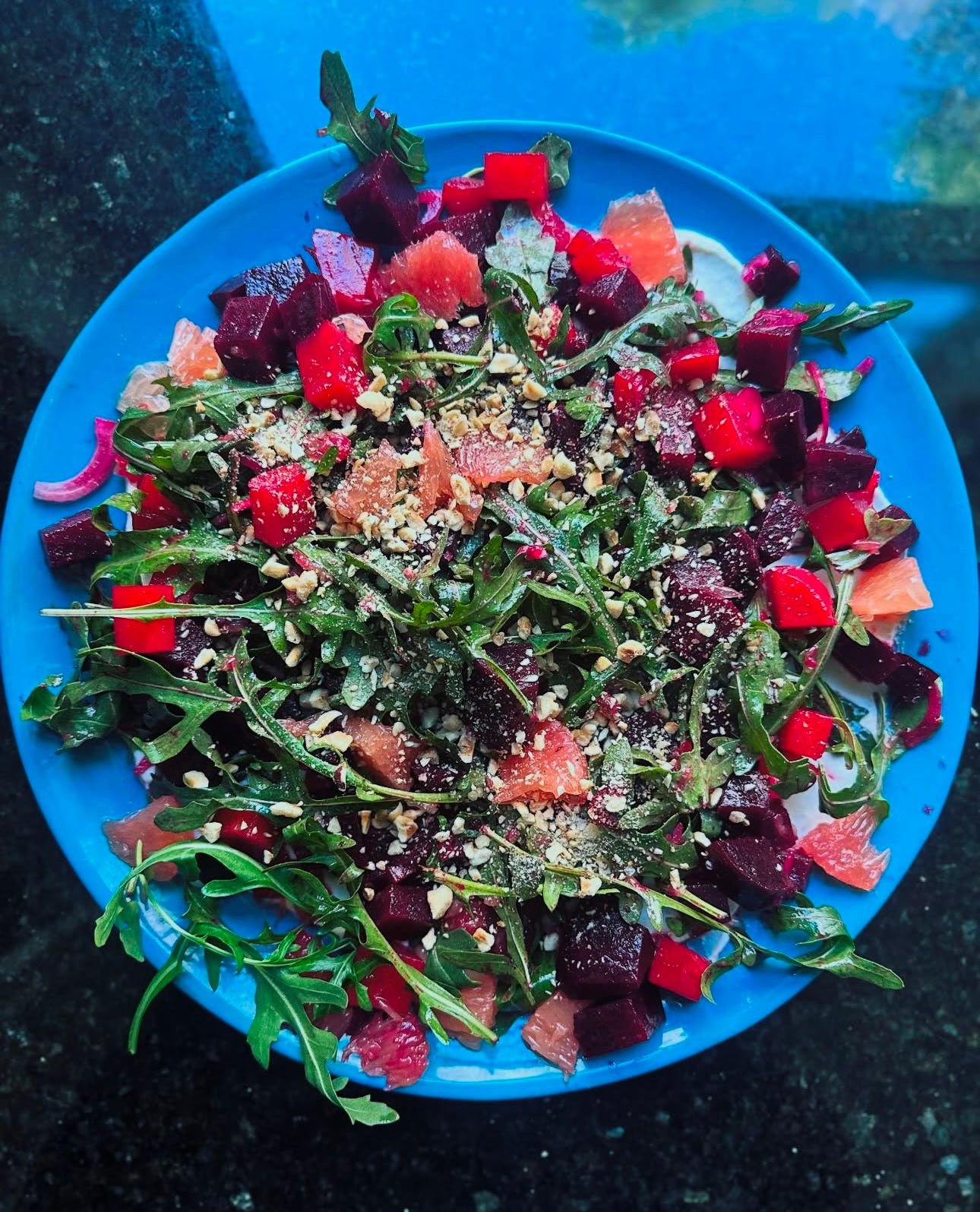Fried Apple, Kale, and Cheddar Salad. Beet and Grapefruit Salad on Whipped Feta.
Slightly rich salads made from ingredients that not everyone likes. And that's their right.
I’M NOT YOUR MOM, so I’m in no position to try to convince you to love black walnuts or fruit in savory green salads or pink food or stinky cheese or eggplant or cilantro or spicy food or rice salads or any of the things readers have told me they’re not really very crazy about over the last four-plus years we’ve been at this.
First of all, it doesn’t usually work once a person has grown up (but it might work on kids, which we’ve discussed in this 2021 issue of the Department of Salad, about trying to get kids to eat salad, which is quoted below.)
According to University of Pennsylvania psychology professor Paul Rozin, who has written extensively about food choice and the concept of learned and evolutionary disgust, kids are much more open to what we think of as “difficult” foods than most of us imagine. They simply haven’t yet acquired the culturally constructed revulsion mechanism (there’s an evolutionary part, too, of course) that adults have. If you offer them a glass of juice from which you have just removed a cockroach, they’ll drink it after you’ve removed the bug. Rozin has other case studies involving children and things they’ll eat that adults will not but I won’t go into them here. I’m sparing you.
Second, who am I to insist that you like something you don’t, especially if I have no idea why? I’ve never respected the kind of bossy food snobbery that seems to have little purpose beyond elevating the fragile ego of the snob. (You must like what I like or you are a peasant!) I save my veneration for people who spread information about delicious things in generous ways that harmonize rather than alienate and divide us. If I love snails and truffles and you don’t, who gets hurt? Nobody.
And third, we obviously never want anyone to consume ingredients that they’re allergic to—or that they’re simply unable to process (be it physically or emotionally).
Still, I have to admit that when I meet people who are repelled by a food I love, I get a little sad. Take beets, for example: I am so fond of them that my objectivity abandons me if you decline them. It seems almost tragic that I’m enjoying beets and you are not.
But when I can manage to put my passions aside and try to imagine what sorts of things might happen to the human psyche to make it dislike beets, I remember that I didn’t like them as a kid, either, even though I portrayed a beet in my kindergarten spring pageant (and a pansy; “the more you pick us the more we grow”). Or maybe I didn’t like them as a kid because I was forced to portray one. Who can say?

But even now, as an adult beet lover, I am well aware that, flavor-wise, they have something very weird going on in the background, lurking around murkily. A lot of people refer to this quality as earthy. But there have been times when their qualities have instead seemed alien and otherworldly to me. I might get a shiver up my spine while eating beets that seems to ask: Is it okay that I’m eating this? Do I like it, or do I really NOT like it?
So I get beet trepidation, I really do. Even though my answer is always: Yes, I like it.
Keep reading with a 7-day free trial
Subscribe to The Department of Salad: Official Bulletin to keep reading this post and get 7 days of free access to the full post archives.






